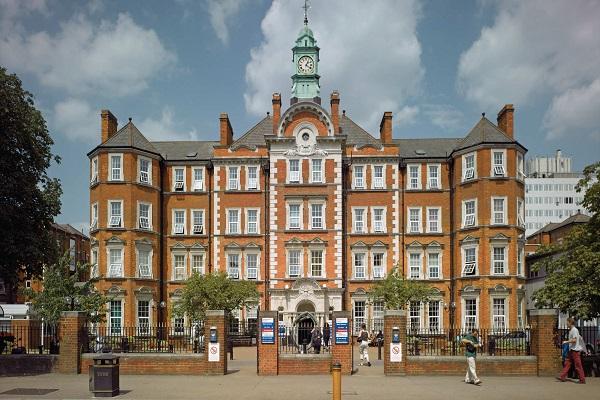Students from around the globe aspire to join the university, renowned for its prestigious programs, especially in engineering, medicine, and business. Located in central London, Imperial College London includes a vibrant academic community and is widely acclaimed for its pioneering research and innovation. While admission remains highly competitive, you can enhance your chances of success with a strong academic profile and thorough preparation. Today, EduNirvana is ready to guide you through how to get admission to Imperial College London for both undergraduate and postgraduate programs.
Why Choose Imperial College London?
Imperial College London stands out as a top choice for ambitious students due to its world-class teaching, cutting-edge research, and global prestige. The university is consistently ranked among the top 10 universities globally and is especially renowned for its STEM and business programs.
Its diverse student body, strong industry links, and central London location offer unparalleled opportunities for personal and professional growth. Graduates benefit from a powerful alumni network and high employability rates across the world.
With over 110 undergraduate and 200+ postgraduate courses, Imperial encourages students to tackle global challenges from multiple perspectives, including opportunities for study abroad, industry placements, and joint degrees.
How to Get Admission to Imperial College London
Imperial seeks students with strong academic records, intellectual curiosity, and a passion for their chosen field. The acceptance rate is highly competitive—around 10–16% for undergraduates and 15% for postgraduates.
Undergraduate Applicants:
- High school qualification equivalent to UK A-levels (for Indian students, 90–92% overall in Class 12 or equivalent).
- Required subjects and, in some cases, admissions tests (such as ESAT or TMUA for certain courses).
- The English language proficiency required is an IELTS score of 6.5 to 7.0, a TOEFL iBT score between 92 and 100, or an equivalent.
- Some courses may require SAT, ACT, or other standardized test scores.
- Strong personal statement and academic references.
Postgraduate Applicants:
- Bachelor’s degree with a strong academic record (at least a UK Second Class Honours or international equivalent).
- For some programs, competitive GRE or GMAT scores are required.
- English language proficiency is IELTS 6.5–7.0, TOEFL iBT 92–100, or more
- Statement of purpose, CV/resume, and academic/professional references.
What Documents Are Required?
Here are certain documents that are essential for applying to Imperial College London:
- Official transcripts and certificates (translated into English if necessary).
- Two to three recommendation letters: academic and/or professional.
- Personal statement (undergraduate) or Statement of Purpose (postgraduate).
- English language test scores (IELTS/TOEFL).
- Standardized test scores (SAT, ACT, GRE, GMAT), if required by the program.
- CV or resume for postgraduate applicants.
- Portfolio for design or architecture-related courses.
- Application fee payment.
Application Process and Deadlines
After 12th (Undergraduate):
- Apply through UCAS (Universities and Colleges Admissions Service).
- Application deadline: January 29, 2025 (for most courses); October 15, 2025 (for Medicine).
- Application fee: £28.50 (about ₹3,000).
After Undergraduate (Postgraduate):
- You can directly submit your application on the university’s official site.
- Application deadline: June 30, 2025 (varies by program).
- Application fee: £80 for most Master’s programs, £100 for MSc at Imperial College Business School, £150 for MBA; no fee for MRes, PG Certificates, Diplomas, or PhDs.
Total Fees and Cost of Attendance
- Undergraduate tuition fees typically range from £35,100–£40,940 per year (about ₹37–₹44 lakh).
- Postgraduate taught courses: £15,500–£40,000 per year (about ₹16–₹43 lakh), depending on the program.
- The cost of living in London is estimated at £26,500 per year (about ₹28 lakh), covering accommodation, food, transport, and personal expenses.
Scholarships and Financial Support
Imperial College London offers a variety of scholarships and funding opportunities for international students, including:
- Imperial College Scholarships (merit-based and need-based).
- President’s PhD Scholarships (full tuition and stipend of £25,980 per year).
- Departmental awards and external scholarships.
- UK government and Commonwealth scholarships for eligible students.
What to Do After Applying
After successfully applying for the program, students must do the following things:
- Track your application status through UCAS or the Imperial College portal.
- Submit any additional documents or information as requested.
- Prepare for interviews or admissions tests if required.
- Await your offer; if accepted, follow the instructions for confirming your place and applying for a UK student visa.
Conclusion
Admission to Imperial College London is challenging but achievable with strong academics, a compelling application, and thorough preparation. Focus on excelling in your studies, participating in relevant extracurriculars, and presenting your authentic self in your application. To ensure you have the most accurate and current details, always consult the official university admissions website.











